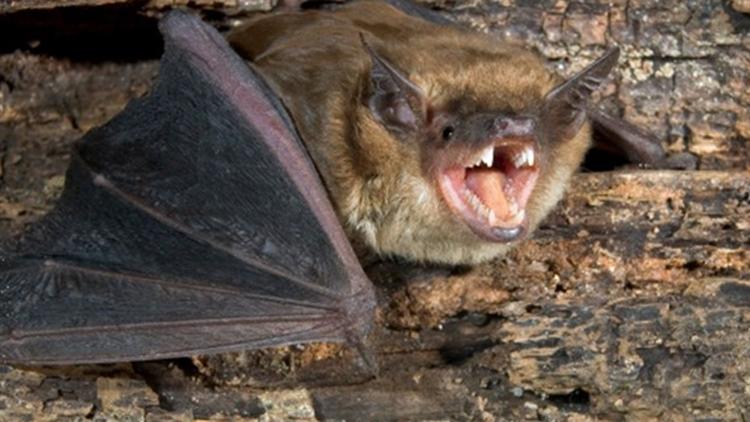OTTAWA COUNTY, Mich. — The Michigan Bureau of Laboratories notified the Ottawa County Health Department (OCHD) that a bat the county had submitted for testing came back positive for rabies. Now, the health department is alerting the public.
The bat marks the first case of rabies Ottawa County has received a positive test for in 2024. The county had zero cases in animals or humans in 2023. However, the state of Michigan has reported 18 cases of animals with rabies this year as of July 12, 2024.
Bats are more active from May through September, making the risk of exposure to a rabid bat much higher during these months. Residents should take steps to protect themselves, their families and pets from exposure to rabies.
The OCHD said that rabies exposure usually occurs when people and pets are bitten or scratched by an infected animal. They said that particular concern is when a bat is found in a room with people who have been asleep, or if a bat is found with an unattended child or impaired adult who cannot be sure of their contact with the bat.
If a person or animal is exposed to rabies, it is critical they get treatment as rabies is a fatal, but preventable disease. If you suspect you, your pet or another person has been exposed to rabies, it is important to have the animal tested for rabies and to seek immediate medical attention. Post-exposure treatment is recommended for people who have been exposed to a potentially rabid animal.
Protect your family and pets from rabies by taking these simple steps:
- Avoid contact with bats and other wild animals. Do not keep wild animals as pets and do not try to rehabilitate wild animals yourself. Wild animals can carry rabies without looking sick.
- If you are bitten or scratched by an animal, seek immediate medical attention.
- If you find a bat in your home, do not release or dispose of it. Safely confine or collect the bat if possible and contact the OCDPH at 616-396-5266 to determine if it should be tested for rabies. If testing is needed, animals may be brought to Harbor Humane Society (616-399-2119 or harborhumane.org) to be sent for testing. More information on how to collect a bat safely can be found here or in this YouTube video.
- Protect your pets by getting them vaccinated against rabies. Even cats that live indoors and never go outside can encounter a bat that gets inside the home.
- If your animal is bitten or scratched by a wild animal, or if you believe they have had unsupervised contact with wildlife, contact your veterinarian as soon as possible. Even if your pet is currently vaccinated against rabies, additional actions may need to be taken to prevent them from becoming infected. If possible, safely confine or capture the wild animal without touching it and contact your local animal control officer or veterinarian, as the animal may need to be tested for rabies.
For more information/additional resources:



